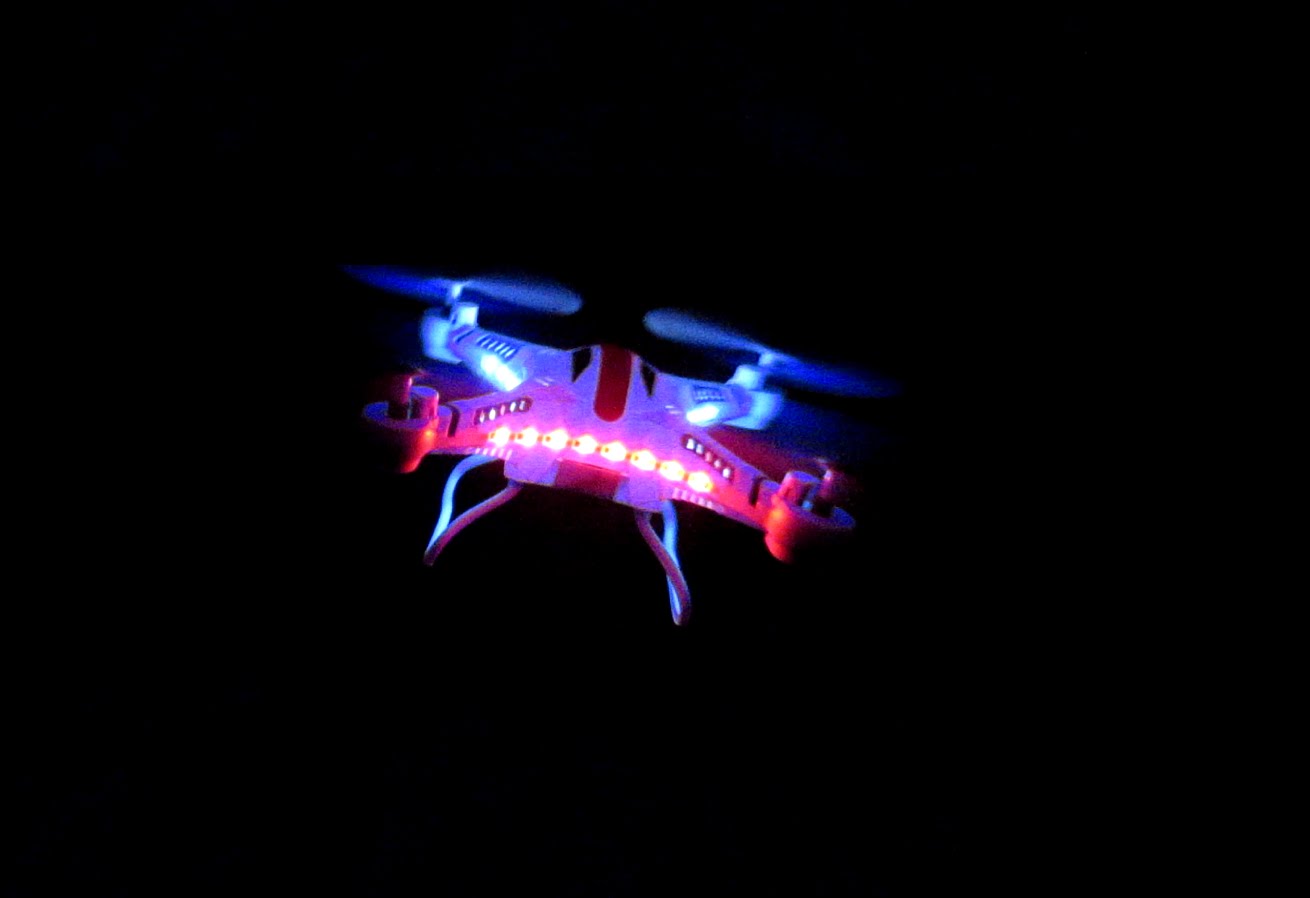
Robohub.org
Canada’s approach to risk management for nighttime drone flights

JJRC H8C Quadcopter Drone – Night Flight. Source YouTube.
The FAA’s Notice of Proposed Rulemaking (NPRM) for small unmanned aircraft systems (SUAS) limits SUAS operations to daylight hours. The FAA concedes that the restriction on nighttime flights may negatively impact the ability to use SUAS in northern regions such as Alaska that have very few hours of daylight during winter months. The FAA has invited stakeholders to comment on how risk may be mitigated in the course of nighttime operations. Here is a breakdown of the Canadian approach to risk management for nighttime flights…
In Canada, nighttime operations are possible under the Special Flight Operations Certificate (SFOC) system. Transport Canada’s Staff Instruction 623-001 outlines the following conditions for nighttime operations:
- If the UAV has lights, the lights must be on during night flights
- If the UAV does not have lights, there must be a means of illumination that would enable visual contact with the UAV
- The crew must have a portable emergency light source available
- The pilot must not have visual limitation of depth perception, colour blindness or problems seeing at night
- Visual observers providing the sense and avoid function (i.e. where the pilot is using FPV) cannot use night vision goggles
Transport Canada further states that if light emitting diodes (LEDs) are used to satisfy the lighting requirement for nighttime operations, the LEDs must have sufficient intensity to enable the pilot or visual observer and other airspace users to have visual contact with the UAV.
tags: c-Aerial, Canada, cx-Politics-Law-Society, drone regulation, FAA




